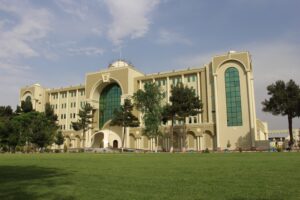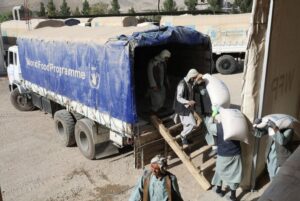SAR-E-PUL (SW) – A number of farmers in Sar-e-Pul, who have planted wheat in their fields, say that due to repeated droughts and lack of monsoon rains this year, their yields have decreased by 90%.
They add that the lack of help from officials and aid institutions to fight drought and improve agriculture has also caused them to suffer huge financial losses.
Abdul Aziz, a 27-year-old resident of Sar-e-Pul, who has been engaged in farming for five years, says that this year he planted wheat on 35 acres of land, but due to the drought, his crops were destroyed and 200,000 afghanis worth of investment lost. “I had planted wheat in 35 acres of land, but it didn’t grow, I spent 200,000 afghanis when a drought came and the government didn’t pay attention. I ask the government to pay attention to us.”
Farmers ask the authorities to distribute modified seeds to them and teach them modern farming methods due to the droughts of several years.
At the same time, the officials of the Department of Agriculture, Irrigation and Livestock acknowledged 90% of the wheat harvest in this province has been lost and the farmers have suffered.
Abdul Qadir Wahdat, head of agriculture department, told Salam Watandar: “This year, we have lost 80-90% of the yields that were always obtained from the fields, and the farmers have suffered. The rain forests have not been planted at all.”
On the other hand, a number of agricultural experts call the agricultural situation in this province alarming due to the occurrence of drought and say that the Ministry of Agriculture should launch useful solutions and programs for farmers.
Wahidullah Manoor, an expert in agriculture, says that with each passing year, the intensity of heat increases and the scope of drought in the country expands that is why farmers should get acquainted with modern farming methods in order to harvest better results in the coming years. He says: “Successive droughts and lack of rains have had a negative impact on agriculture. The government must pave the ground for modern agriculture, otherwise, farmers will suffer deeper losses every year.”
It should be mentioned that wheat, barley, cotton and sesame are among the most important agricultural products in Sar-e-Pul and the farmers in this province provide their daily needs in this way. But successive droughts in the last three-four years have made life difficult for them.
ENDS






